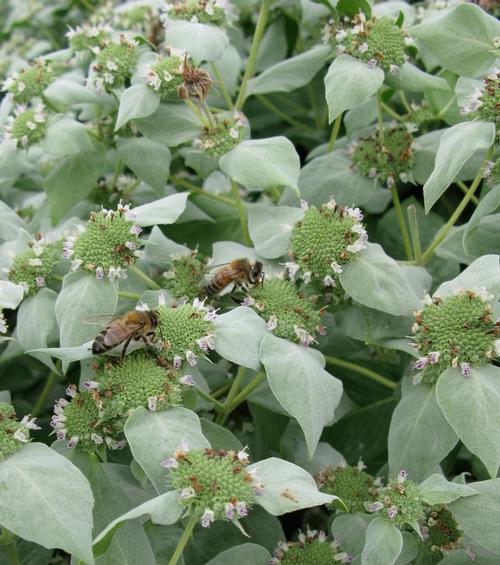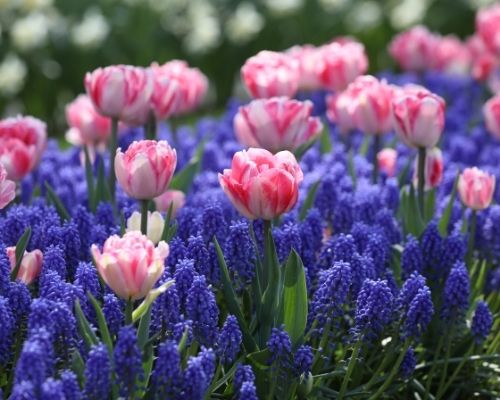Make Your Garden a Popular Destination for Pollinators
Bees live on the pollen and nectar of flowers, so the best way to attract them to your garden is to always have flowers in bloom -- from early spring through late fall.
Growing many different types of flowering plants will attract the greatest number and variety of pollinators. Here are some flower garden favorites that will keep your local bees busy and well fed:
Bowl-Shaped Flowers
These flowers are particularly attractive to honeybees and bumblebees. They are typically rich in pollen, provide easy access, and the cupped petals offer some shelter while feeding. Good examples of this flower style include crocuses, tulips, poppies, peonies, anemones, cosmos, hollyhocks and shrub roses.
Daisy-Like Flowers
These blossoms have flat centers that make good landing pads for eating, sunning and resting. Examples include golden marguerites, Shasta daisies, echinaceas, asters, sunflowers, zinnias, heleniums, rudbeckias and single or peony-style dahlias.
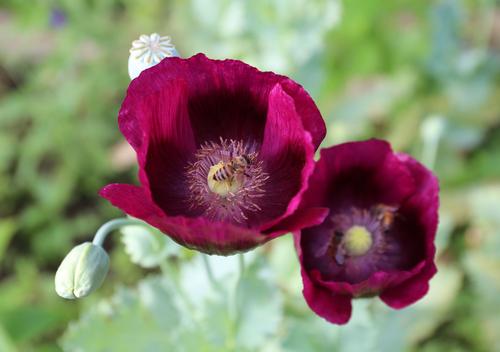
Plants with Fluffy Flowers
Wild bees are particularly attracted to plants with fluffy-looking flower clusters, such as Joe Pye weed, veronicastrum, goldenrod, buddleia, astilbe and most members of the mint family, including agastache.
Plants with Globe-Like Blossoms
These flowers are irresistible to many types of bees. The flower heads produce a plentiful supply of nectar and may have either flat florets (as shown above) or tubular ones (like chives). Examples include alliums, globe thistle, astrantias and scabiosas.
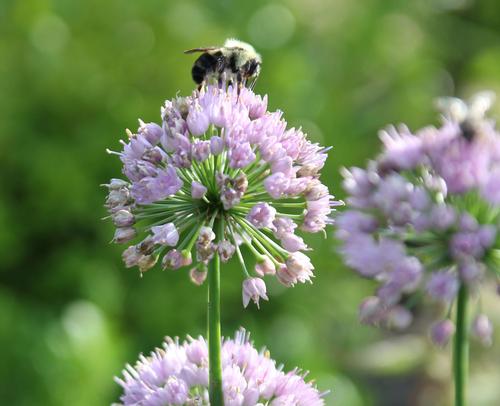
Flowers With Flat Umbels
Flowers in the carrot family have wide, flat umbels that attract many species of bees and especially the tiny solitary bees. Options include Queen Anne’s lace, ammi majus and angelica.
Flowers in the Mint Family
Plants in the mint family lure bees with their aromatic foliage and nectar-rich flowers. Garden worthy-plants include bee-friendly flowers such as monarda (bee balm), nepeta (catmint), lavender, sage and salvia.
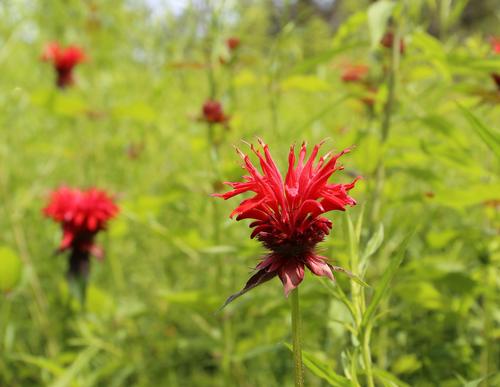
Plants in the Legume Family
Bees are also crazy about plants in the legume family. This is because they produce extra nutritious pollen. Legumes with attractive, garden-worthy flowers include sweet peas, lupines and baptisia.
Plants in the Borage Family
Plants in the borage family are another magnet for bees. When their flowers are in bloom, you'll find them covered with bees from dawn to dusk. At the top of this family of bee-friendly flowers is borage, followed by lungwort, forget-me-nots, heliotrope, Virginia bluebells and comfrey.
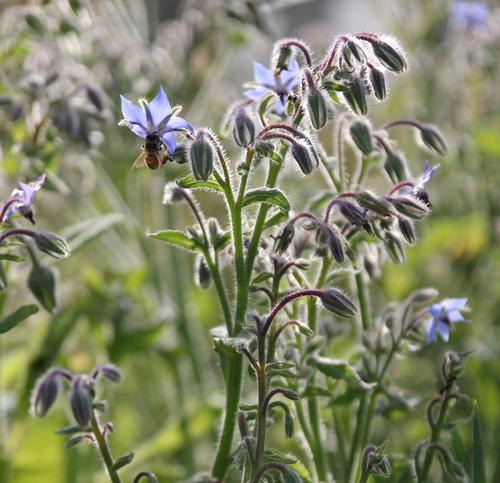
Cultivated vs. Native
Research has shown that native plants typically attract more pollinators than cultivated varieties. There are thousands of species of native bees and many are specialists that have a unique partnership with certain types of native plants.
Modern cultivars that have been bred for qualities that will appeal to us, such as double echinaceas or pollenless sunflowers, are often less appealing to bees.
There's no reason to avoid planting whatever types flowers you like, but your garden will be more bee-friendly if you also include some native species. For a free list of flowering plants that are native to your region, visit the North American Pollinator Partnership Campaign.
To learn more about growing a bee-friendly garden, we recommend the following article, available on our website:
How to Design a Bee-Friendly Garden
